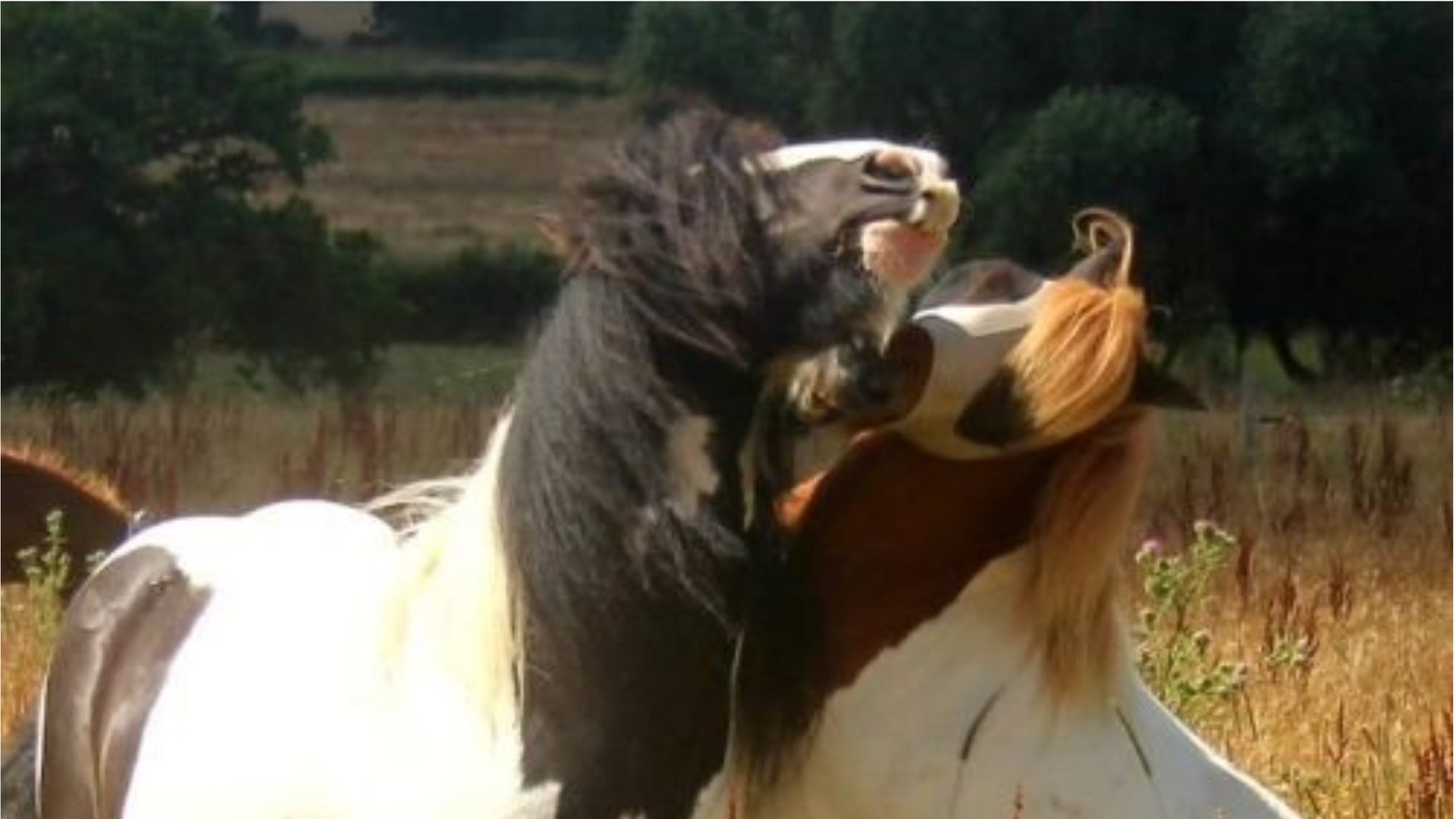Still Feeding Biotin for Hooves? Here’s why you shouldn’t
Why biotin isn’t the magic fix we thought it was
Biotin gets a lot of hype for hooves - but it’s not the cure-all we thought. If your horse struggles with hoof quality, it’s far more likely down to low protein, poor-quality forage, lack of essential nutrients like zinc, copper and methionine, or gut health issues.
Most horses should make all the biotin they need in their gut. Feeding synthetic biotin on top - especially as a standalone - is often unnecessary and sometimes counterproductive. Instead, we should focus on the full nutritional picture.
Where the biotin story started
Biotin, a sulphur-containing B-vitamin (B7), plays a role in cell proliferation and keratin production, which forms the structural protein of the hoof wall. Because of this, supplementing biotin became a popular strategy to try and improve hoof health. Some early studies (notably Reilly et al., 1998; Josseck et al., 1995) did suggest that 20mg/day of biotin over a long period (5 months to 3 years) might correlate with improved hoof horn growth and strength.
But let’s pause there. Those studies were:
- Small in scale (often 8-10 ponies)
- Long-term (changes seen only after months of consistent supplementation)
- In very controlled environments
- And didn’t always account for other contributing factors like diet, amino acids, fatty acids, or the horse’s gut health.
What’s more, they used synthetic biotin – which brings us to the next question mark.
Synthetic biotin: an inefficient, expensive add-on
Most commercially available biotin is synthetic, and here’s the kicker - horses are designed to synthesise their own B vitamins, including biotin, via hindgut fermentation.
So, if your horse is:
- On a fibre-rich, forage-based diet
- Has a healthy microbiome
- And is
not grain-loaded or on high-starch feed
… then they're already
producing
all the biotin they need. Deficiency is rare.
If hoof quality is poor, more often it's a marker for systemic issues - poor gut health, low-grade inflammation, immune stress, or imbalances in key co-factors like amino acids, sulphur, and essential fatty acids.
What actually builds a healthy hoof?
Your horse’s hoof is:
- 90% protein on a dry matter basis
- Composed largely of keratin, which depends on methionine and lysine amino acids
- Reinforced with sulphur bonds, requiring nutrients like MSM and cysteine (methionine converts to cysteine)
- Protected by a fat-rich outer wall, reliant on omega-3 EFAs
So instead of focusing on isolated biotin, a better strategy is to nourish the hoof from the inside out, using:
Amino Acids
- Methionine
- Lysine
- Cysteine supported by MSM
Essential Fatty Acids
- Supplied sufficiently if your horse is on 24/7 growing grass (summer), but if on hay or winter pasture, feed micronised linseed to compensate for the EFA losses
Functional Co-Factors
- Zinc (for keratin formation)
- Copper (for crosslinking collagen)
- Sulphur nutrients (MSM)
The risks of overdoing biotin
More is not better. Oversupplementation of biotin can interfere with:
- Natural homeostasis
- Insulin release (slowed)
- Vitamin C and B6 levels (reduced)
- May increase blood sugar levels (a red flag for EMS/IR horses)
There’s
no evidence to support mega-dosing beyond 20–30mg/day - yes you read that right -
milligrams, as in a micro dose. Furthermore, being a water-soluble vitamin, any excess is simply
urinated out. It’s not only a waste of money - it may actually
skew nutrient balance.
What to feed instead?
EquiNatural's VitaComplete -our forage-first, hoof-friendly formula that ticks every box.
Support your horse’s hooves the natural way with full-spectrum nutrition to grow strong, resilient hooves from the inside out. No synthetics needed.
VitaComplete in action
“After trying a trial bag she loved the VitaComplete and licks the bowl clean every time! It gives me peace of mind that my mare is getting all the essential vitamins and minerals that she needs - her coat is lovely and shiny all year round and my trimmer noticed a big improvement in her feet. Overall a great product that I would not be without.”
FAQs
Q: Does biotin help horse hooves?
A: Not always. Most horses synthesize biotin naturally in the hindgut. Poor hoof quality is more often linked to protein deficiency, poor forage, or nutrient imbalances - not a lack of biotin.
Q: What nutrients support healthy hooves in horses?
A: Key nutrients include methionine, lysine, cysteine (via MSM), zinc, copper, omega-3 fatty acids, and sulphur - all essential for keratin production and hoof strength.
Q: Can you feed too much biotin to horses?
A: Yes. Excess biotin may slow insulin release, reduce other B vitamin levels, and elevate blood sugar - especially risky for EMS/IR horses.
Q: How long does biotin take to improve horse hooves?
A:
Clinical studies suggest 5–12 months, but only under specific conditions. However, true results require full nutritional support, not biotin alone.
Q: What causes poor hoof quality in horses?
A:
Common causes include low protein, insufficient amino acids, poor-quality forage, systemic inflammation, and poor gut health - not just biotin deficiency.











